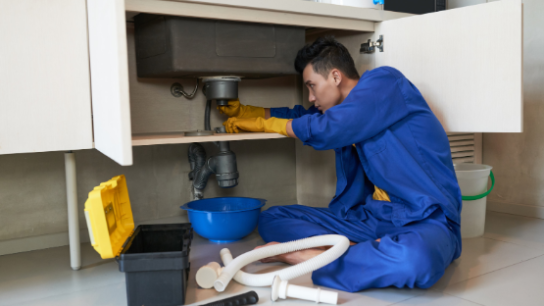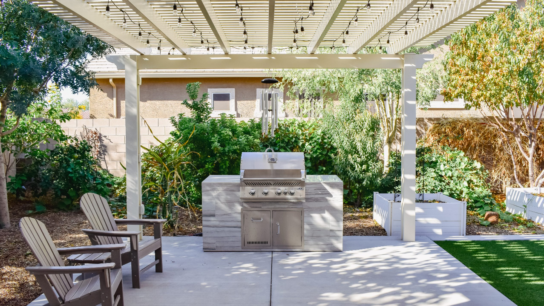In an increasingly interconnected world, home security systems have become essential tools for protecting your property, belongings, and loved ones. Modern advancements in technology have made home security systems more accessible, efficient, and customizable than ever before, offering peace of mind solutions tailored to your specific needs and lifestyle. Whether you’re a homeowner, renter, or property manager, investing in a comprehensive home security system can provide you with the confidence and reassurance that your home is protected against potential threats. In this guide, we’ll explore the benefits of installing a home security system, key components to consider, and tips for maximizing your security setup to ensure peace of mind solutions for your home.
Subtitles:
- Understanding the Benefits of Home Security Systems
- Essential Components of a Comprehensive Security System
Understanding the Benefits of Home Security Systems
1. Deterrence of Burglaries and Break-Ins
One of the primary benefits of a home security system is its deterrent effect on burglaries and break-ins:
- Visible Cameras and Alarms: Visible security cameras, alarm systems, and signage indicating the presence of a security system act as deterrents, dissuading potential intruders from targeting your home.
- Monitoring Services: Professional monitoring services, which alert authorities in case of suspicious activity or emergencies, provide an additional layer of deterrence and rapid response.
2. Remote Monitoring and Control
Modern security systems offer remote monitoring and control features, allowing you to access and manage your home security from anywhere:
- Mobile Apps: Mobile applications enable you to monitor live camera feeds, receive real-time alerts, arm/disarm your security system, and control smart devices remotely using your smartphone or tablet.
- Smart Home Integration: Integration with smart home platforms allows for seamless control of security features alongside other connected devices, such as smart locks, lights, and thermostats.
3. Protection Against Fire and Environmental Hazards
Beyond intruder detection, home security systems can also protect against fire, smoke, carbon monoxide, and other environmental hazards:
- Smoke and Heat Detectors: Integrated smoke and heat detectors can trigger alarms and alert monitoring services in case of fire, providing early warning and potentially life-saving responses.
- Carbon Monoxide Sensors: Carbon monoxide detectors monitor indoor air quality and alert occupants to dangerous levels of carbon monoxide, helping prevent poisoning and health risks.
Essential Components of a Comprehensive Security System
1. Security Cameras
Security cameras are fundamental components of a home security system, offering visual monitoring and surveillance capabilities:
- Indoor and Outdoor Cameras: Install indoor cameras to monitor interior spaces, entryways, and common areas, while outdoor cameras provide coverage of exterior perimeters, driveways, and entry points.
- High-Definition (HD) Video: Choose cameras with high-definition video quality, night vision capabilities, motion detection, and two-way audio for clear visuals and enhanced surveillance.
2. Alarm Systems
Alarm systems serve as audible and visual alerts in response to unauthorized access, intrusion attempts, or environmental hazards:
- Entry Sensors: Install entry sensors on doors, windows, and access points to detect unauthorized entry and trigger alarms when breached.
- Motion Detectors: Place motion detectors indoors to detect movement and activity in designated areas, complementing camera surveillance and enhancing security coverage.
3. Smart Sensors and Devices
Integrate smart sensors and devices to enhance the functionality and automation of your home security system:
- Smart Door Locks: Upgrade to smart door locks with keyless entry, remote access, and customizable access codes for enhanced security and convenience.
- Smart Lights: Use smart lights with motion sensors and programmable schedules to deter intruders, simulate occupancy, and enhance visibility around your property.
4. Monitoring and Response Services
Consider professional monitoring and response services to enhance the effectiveness and reliability of your home security system:
- 24/7 Monitoring: Opt for round-the-clock monitoring services that detect and respond to security alerts, emergencies, and suspicious activities, providing rapid intervention and peace of mind.
- Emergency Contacts: Provide emergency contacts, such as local authorities, fire departments, and trusted neighbors, with access to your security system information for coordinated responses during emergencies.
Tips for Maximizing Your Security Setup
1. Regular Maintenance and Testing
Schedule regular maintenance, testing, and inspections of your security system components to ensure optimal functionality and reliability:
- Battery Checks: Replace batteries in sensors, cameras, and alarms as needed to maintain power backup and uninterrupted operation.
- Software Updates: Install software updates, firmware upgrades, and security patches for your security devices and mobile applications to address vulnerabilities and improve performance.
2. Customized Security Settings
Customize security settings, notification preferences, and automation rules based on your home’s layout, occupancy patterns, and security priorities:
- Arming Modes: Configure arming modes, such as home, away, and night modes, to adjust security levels, sensor sensitivities, and response actions accordingly.
- Notification Alerts: Set up notification alerts for specific events, such as motion detection, door/window openings, or system status changes, to stay informed and proactive about security incidents.
3. User Training and Awareness
Educate household members, occupants, and trusted individuals about security protocols, emergency procedures, and system operation to promote awareness and collaboration:
- User Training: Conduct training sessions or demonstrations on how to arm/disarm the security system, use mobile apps, and respond to security alerts or emergencies effectively.
- Emergency Drills: Practice emergency drills, evacuation plans, and communication protocols with family members to ensure readiness and coordinated responses during security incidents.
Conclusion
Installing a comprehensive home security system offers peace of mind solutions by deterring intruders, providing remote monitoring and control, and protecting against various security threats and environmental hazards. By understanding the benefits of home security systems, incorporating essential components, and following best practices for system maintenance and user training, you can create a safe, secure, and smart home environment that safeguards your property and promotes peace of mind for you and your family. Evaluate your security needs, explore available options, and consult with security professionals to design and implement a tailored security solution that meets your specific requirements and enhances your overall quality of life.








